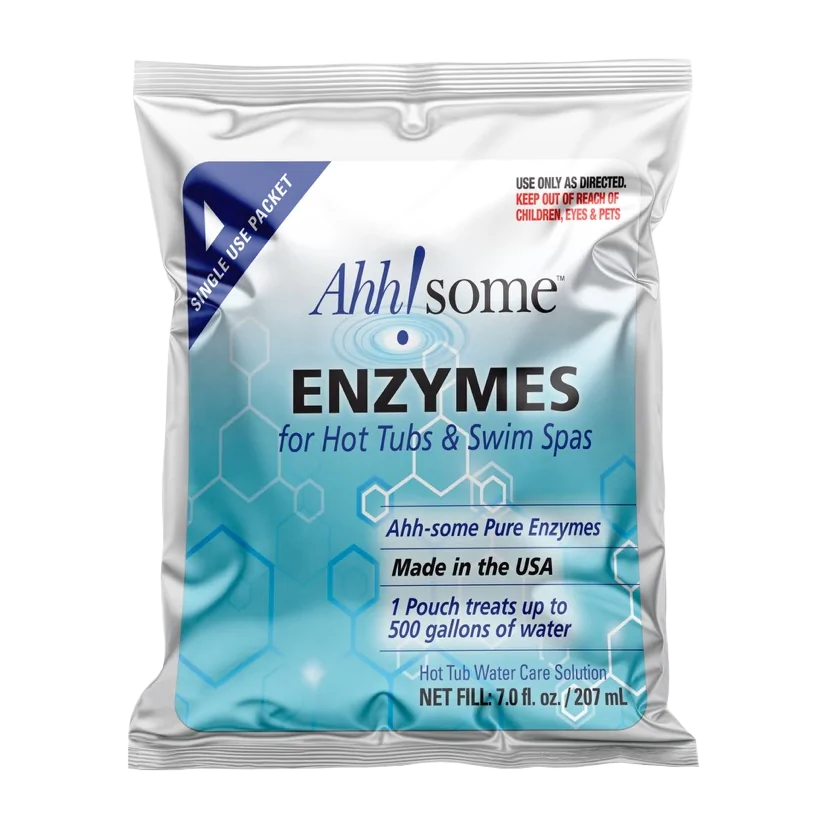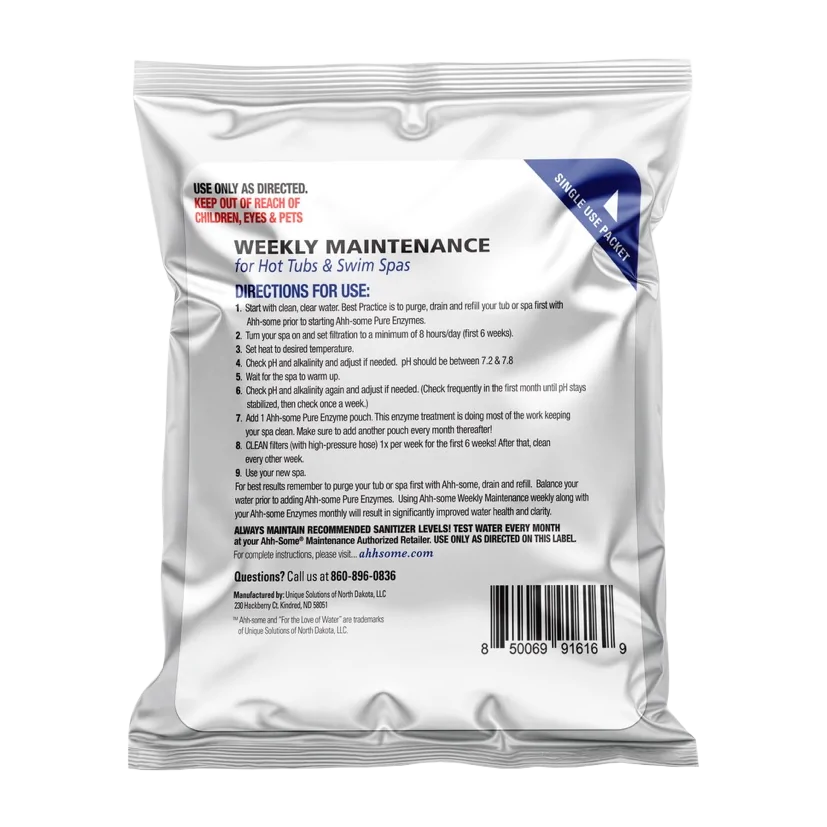Enzymes for Hot Tubs: What They Are and Why They Matter
Enzymes for hot tubs are specialized ingredients designed to help keep water clean and more enjoyable by breaking down common contaminants. These contaminants often include oils, lotions, cosmetics, and dead skin introduced during regular use. While traditional water care products focus on overall water treatment, enzymes serve a different purpose by targeting contaminant build-up before it can collect on surfaces or in plumbing.
Ahh-some Pure Enzymes are designed to work alongside Ahh-some Hot Tub & Swim Spa Purge products. For best results, enzyme use is recommended after purging your tub to help start with a clean system. Incorporating Ahh-some Weekly Maintenance with Ahh-some Pure Enzymes supports consistently clean water and helps simplify ongoing care, making routine maintenance easier and more manageable.
How Enzymes Work in Hot Tubs
In hot tubs, enzymes help break down inorganic contaminants into smaller components. Once broken down, these materials are easier for the filtration system to capture or remove, helping reduce contaminant build-up inside the tub and plumbing. This process supports cleaner surfaces and clearer water without adding complexity to regular maintenance routines.
Benefits of Using Enzymes in Hot Tubs
-
Cleaner Water: Enzymes help reduce surface residue, water cloudiness, and visible buildup, resulting in clearer, more inviting water.
-
Reduced Contaminant Build-Up: By targeting oils and other common residues, enzymes help prevent buildup in filters, jets, and plumbing.
-
Improved Water Balance: With fewer contaminants, it’s easier to maintain stable pH and alkalinity levels.
-
Extended Equipment Life: Cleaner water and reduced buildup can help equipment run more smoothly, minimizing the need for frequent cleaning or service.
-
Better User Experience: Cleaner water and surfaces contribute to a more comfortable and enjoyable hot tub experience for every user.
Why Enzymes Are Especially Important in Hot Tubs
Hot tubs are smaller than pools and typically run at higher temperatures, which encourages the rapid growth of bacteria and makes water chemistry harder to maintain. The high bather load (relative to water volume) also means more organic contaminants are introduced per use. Enzymes help manage this load naturally and effectively, making them a valuable addition to a routine water care program.







Verified owner
Amazing. I bought just one pouch to try a couple months ago. Worked better than any other enzyme I have ever used. I am a fan of using less chemicals. I came back and bought an entire years worth. Highly recommend.
Store manager
I was hesitant. I am hesitant no longer. I cannot believe how much better my water looks and feels. Highly recommend.
Store manager
These enzymes work really well. I found out that the instructions were correct. If you add this to water that is not fresh or clean you will get a lot of foam. Learned that lesson the hard way.